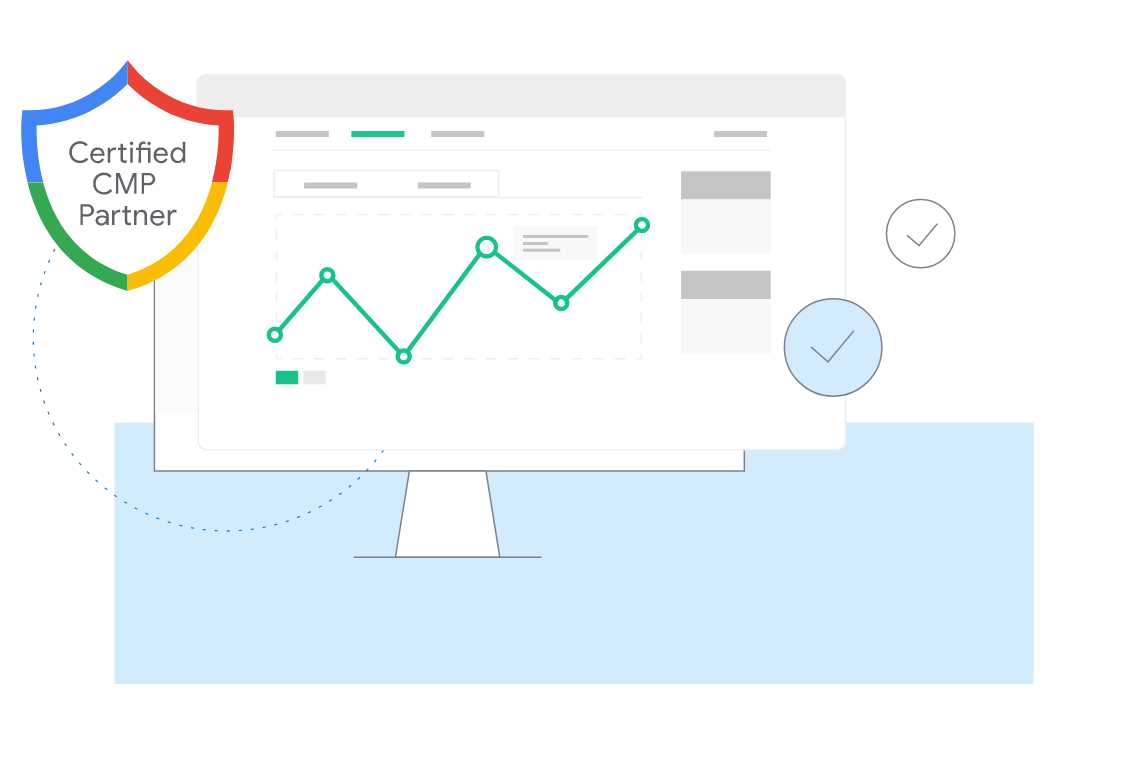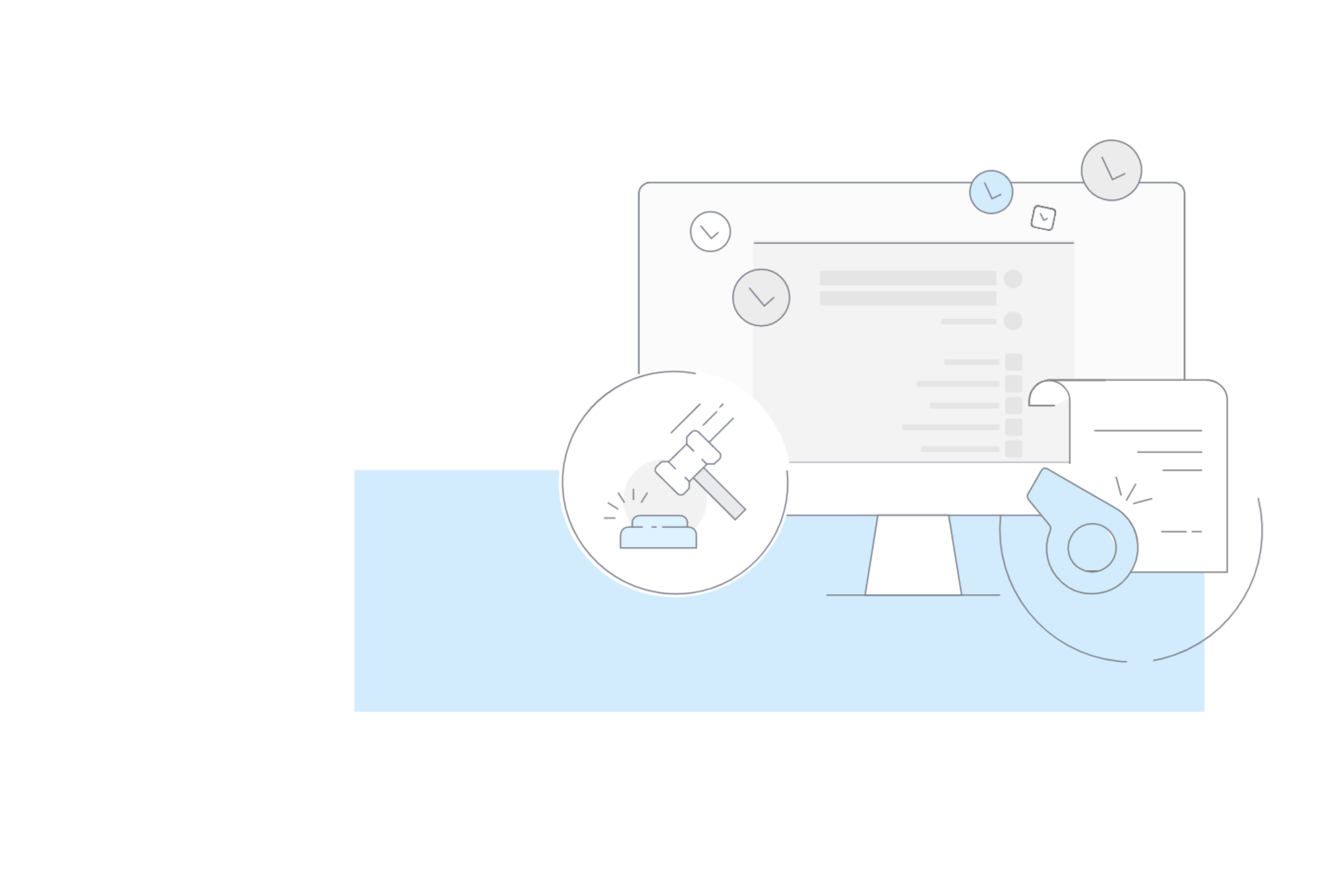What can you do with a professional tool?
DISCOVER THE SOLUTIONS TO MAKE COMPLIANT YOUR WEBSITE OR YOUR APP
What are the essential requirements if you have a website or an app?
DATA PROTECTION SHOULD BE AN INTEGRAL PART OF EVERY WEBSITE AND IS MANDATORY BY LAW.
Privacy & Cookie Policy
Have a Privacy and Cookie policy that includes information about the third-party services that are used, e.g. Google Analytics and other tracking tools.
Cookie Banner
The cookie law in force in the EU obliges the publication of a banner, from which the visitor expresses his consent to the installation of profiling cookies.
Terms & Conditions
Your website's Terms and Conditions show the terms of use and protect you from liability. They are a great defense tool.
Consent database
The consent database allows you to collect the consents of your users. For example, to record consents given for a newsletter or a registration form.

GDPR COMPLIANCE IN SWTZERLAND
GDPR COMPLIANCE IN SWTZERLAND
The GDPR applies to organizations, companies, individuals, corporations, public authorities and other entities - including small businesses, charities and nonprofit organizations - that are to offer goods or services (even for free) to people in the EU, or that monitor the behavior of people in the EU, either directly or as a third party.
Iubenda helps you to be GDPR-compliant.
FAQ
-
What is the GDPR?
GDPR stands for General Data Protection Regulation.
This is the European Regulation 2016/679.
In short, the GDPR defines how to process personal data, including how to collect the consent, use, protection and sharing of the same.
The GDPR exists to regulate data usage and ensure the protection of all individuals whose personal information falls within its scope by giving them full control over their data. -
What is CCPA?
The California Consumer Privacy Act (CCPA) is a state data protection law that regulates how businesses around the world are permitted to process the personal information of California residents.
The CCPA went into effect on January 1, 2020. This is the first law of its kind in the United States. Effective January 1, 2023, the California Privacy Rights Act (CPRA) went into effect, amending and extending the CCPA. -
What is LGPD?
This is the Brazilian Personal Data Protection Act (LGPD, Lei Geral de Proteção de Dados). We can consider it as a Brazilian GDPR. The LGPD has many similarities with the European regulation and serves to regulate all those areas in which there is no clear legal framework, in some cases even to replace.
The LGPD wants to create a clear legal framework for the use of personal data in Brazil, online and offline, in the private and public sector. -
What is the EU Whistleblowing Directive?
The EU Directive 2019/1937 on the protection of persons who report violations of the laws of the European Union, also known as the Whistleblower Directive, was adopted on October 23, 2019 and entered into force on December 16, 2019.
It sets minimum standards for the protection of whistleblowers throughout the European Union and requires all EU member states to comply.
As of Dec. 17, 2023, the EU Whistleblowing Directive will require organizations with 50 or more employees, with headquarters or subsidiaries in the EU, to set up an internal channel for reporting misconduct such as, for example: privacy violations, financial malfeasance, consumer protection, harassment, environmental issues, etc.
Who must comply with the whistleblower directive?
-Public and private entities with 50 or more employees.
-All state, regional and municipal governments with more than 10,000 inhabitants.
Find out more about the new whistleblowing directive here. -
To what extent is the Whistleblowing Directive relevant for Switzerland?
The EU Whistleblower Directive cannot be adopted 1 to 1 for Switzerland. In Switzerland, the law currently stipulates that employees must first report misconduct internally to their employer.
Only when all internal reporting options have been exhausted and there is a public interest can the employee report the matter to the authorities. If this does not result in any action being taken, the employee can report the misconduct to the public as a last resort.
With the right communication channels, it may therefore be possible to prevent major crises. It is therefore in employers' own interest to create internal reporting channels for employees. The whistleblower management tool creates such a communication channel where anonymity and confidentiality are guaranteed. -
What is Google Consent Mode v2?
Google Consent Mode is a solution provided by Google that helps advertisers comply with data protection regulations related to consent (e.g. the EU GDPR, the Data Protection Directive and the Digital Markets Act) while making the most of Google services such as Google Ads or Analytics. This allows you to comply with consent requirements imposed by data protection laws while understanding how users trigger conversions on a page and respecting users' consent choices for ads and analytics cookies.
*The Client acknowledges and accepts that the services described on this page, the contents of iubenda.com and the documents generated using the Iubenda services are provided for informational purposes. Although the clauses and provisions that can be selected in the generator have been drawn up by a team of Iubenda consultants and are subject to constant review and updating, the generation of documents takes place in a fully automated way. Therefore, the Service does not constitute or replace legal advice, nor does it give rise to a mandate relationship between the client and the lawyer. Despite the maximum effort aimed at offering the best possible service, neither Iubenda or Swizzonic can guarantee that the documents generated are perfectly compliant with the applicable law. Customers and Users are therefore advised not to rely on the documents generated with iubenda without the assistance of a lawyer qualified in the relevant legal system(s).



